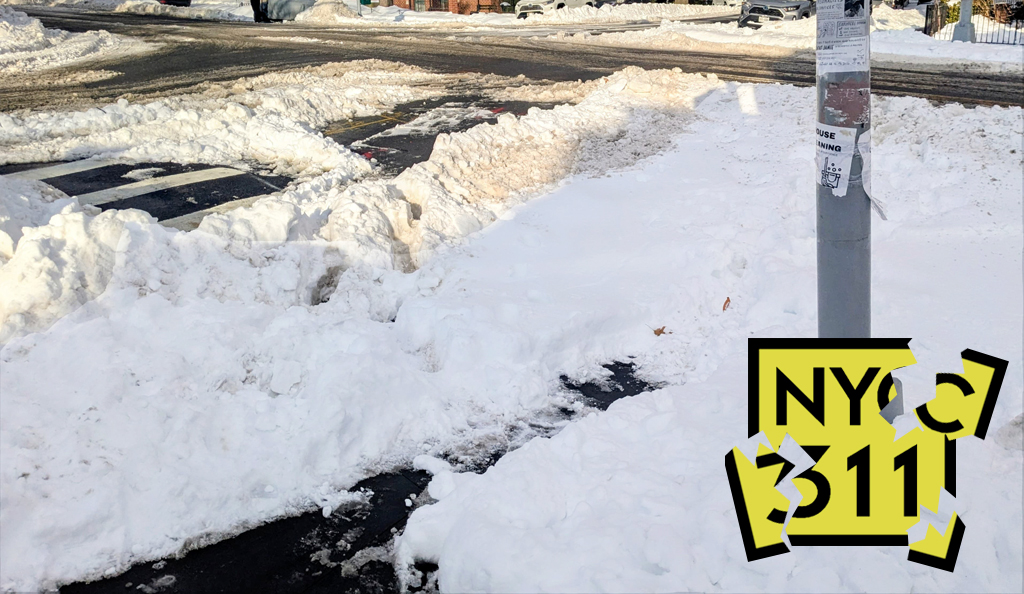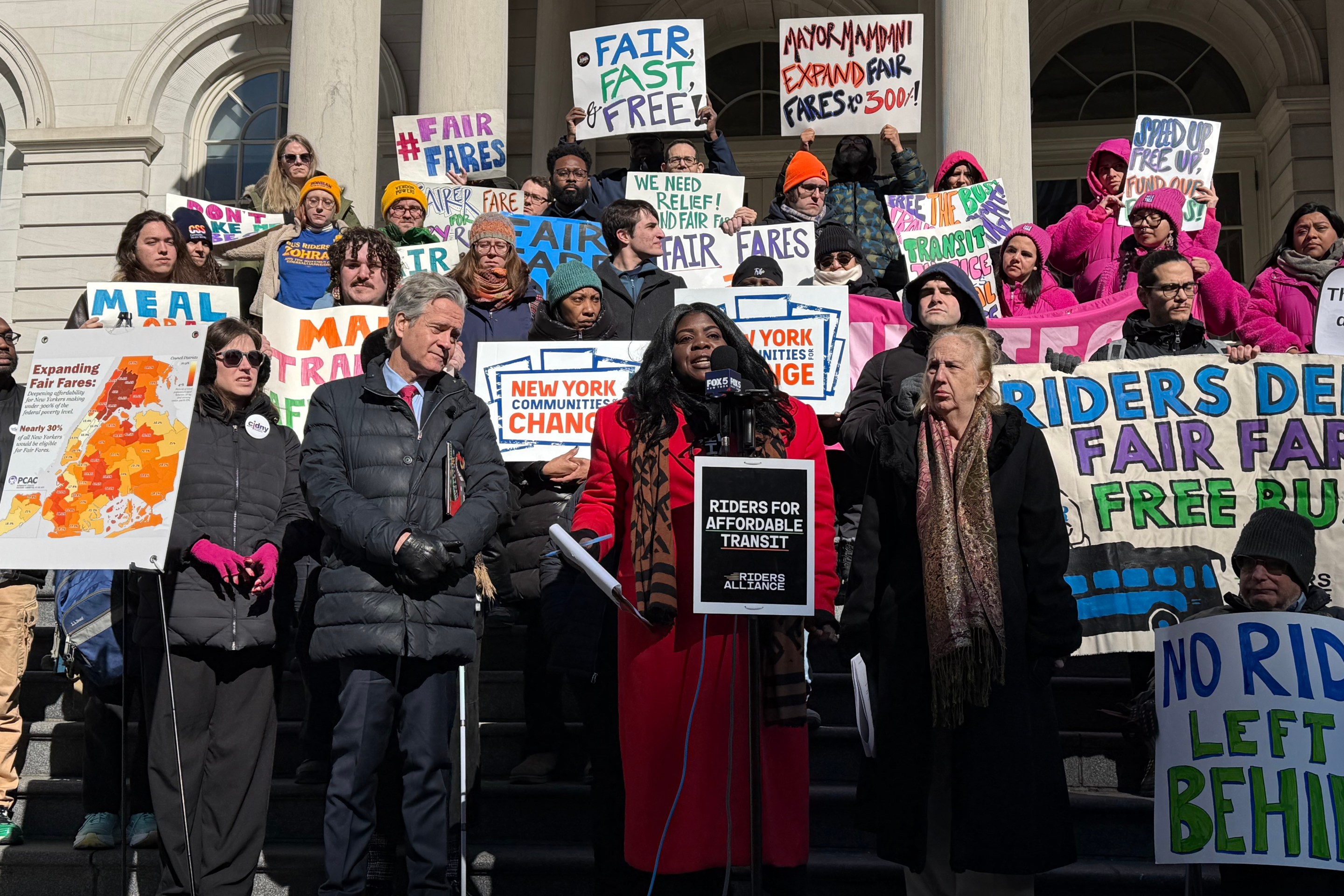We hear it all the time: The road lobby insists that the only way to reduce mind-numbing traffic congestion on the roads they built is to build new roads. Federal funding gives huge blank checks to state DOTs, which tend to prioritize road building over transit, bridge maintenance or anything else. But mounting evidence suggests that building new roads won't do anything to alleviate congestion.
In a paper to be published soon in the American Economic Review, two University of Toronto professors have added to the body of evidence showing that highway and road expansion increases traffic by increasing demand. On the flip side, they show that transit expansion doesn't help cure congestion either.
We’ll spare you the calculus in the report. Here’s the upshot: “Roads cause traffic.”
Professors Gilles Duranton and Matthew Turner analyzed travel data from hundreds of metro areas in the U.S., resulting in what they call the most comprehensive dataset ever assembled on the traffic impacts of road construction. They write:
For interstate highways in metropolitan areas we find that VKT [vehicle kilometers traveled] increases one for one with interstate highways, confirming the "fundamental law of highway congestion" suggested by Anthony Downs (1962; 1992). We also uncover suggestive evidence that this law may extend beyond interstate highways to a broad class of major urban roads, a "fundamental law of road congestion". These results suggest that increased provision of interstate highways and major urban roads is unlikely to relieve congestion of these roads.
Duranton and Turner say building more roads results in more driving for a number of reasons: People drive more when there are more roads to drive on, commercial driving and trucking increases with the number of roads, and, to a lesser extent, people migrate to areas with lots of roads. Given that new capacity just increases driving, they find that “a new lane kilometer of roadway diverts little traffic from other roads.”
Given the huge amount of time consumed by driving (the average American household spent nearly three hours per day in a car in 2001), the authors note that “the costs of congestion are large.” Considering the economic value of time spent doing anything but sitting in bumper-to-bumper traffic, that becomes an economic problem of the first order.
“Transportation accounts for about one dollar in five that Americans spend,” Turner said in an interview with Streetsblog. “The interstate highway system eats up on the order of two dollars of every $100 of every market transaction in the United States. That’s a huge part of the economy and a huge part of people’s lives. Understanding how that works is really important; you don’t want to make mistakes on something that important. You don’t want to build roads and have them not deliver the effects that you expect them to.”
The implications for this research are significant, especially as Congress considers whether to integrate performance measures into federal transportation spending decisions. These findings make a strong case that Congress should not allocate too many scarce resources to road expansion when that's not a real solution for congestion.
Duranton and Turner say that metropolitan areas tend to get new roads regardless of whether or not the prevailing level of traffic warrants expansion. They urge the establishment of transportation policies based on their findings and the data they compiled, rather than the “claims of advocacy groups”:
Unfortunately, there is currently little empirical basis for accepting or rejecting the claims by the American Road and Transportation Builders Association that “adding highway capacity is key to helping to reduce traffic congestion”, or of the American Public Transit Association that without new investment in public transit, highways will become so congested that they “will no longer work”. Our results do not support either of these claims.
They didn’t find that transit reduces congestion. But that doesn’t mean that metro areas shouldn’t build transit as a way to maximize the efficiency of their transportation networks, they say. Turner said transit is a good way to get more "person-miles" out of roads. But more buses and trains won't reduce congestion, he added, because regardless of how many drivers switch to transit, other drivers will fill the vacuum.
"If you think about the result that we’re finding for roads – if you add a little bit of capacity, someone uses it, right?" Turner said. "So there are all these people out there waiting to take trips as soon as there’s space on the roads. So if somebody stays home, or if you add capacity to the road, there’s somebody there waiting to use that space. Well you should expect the same thing to happen if somebody gets out of their car and gets on the bus, it’s bringing up a little bit more room on the roads, and there’s somebody out there waiting to use it."
Still, Turner says transit plays a vital role in maximizing the value of our transportation networks. “Transportation infrastructure is just so expensive,” he said. It’s important to use it efficiently.
The researchers didn’t discern between light rail, commuter rail, and buses. Turner said he feels that buses allow cities to move just as many people with a much cheaper infrastructure network, but there are passionate arguments on both sides of the bus vs. rail debate, and the authors don't choose one over the other in their paper. In fact, they only have one significant policy recommendation:
These findings suggest that both road capacity expansions and extensions to public transit are not appropriate policies with which to combat traffic congestion. This leaves congestion pricing as the main candidate tool to curb traffic congestion.
“The menu of policy responses to congestion is not really that long,” Turner said in our interview. “You’ve got building more roads, building more transit, and congestion pricing, and if you’d like you can put smart growth on there. We looked at two of those really carefully and found that they didn’t perform as advertised. So if you’re thinking about these things purely as responses to congestion, it doesn’t look like they work. There is some evidence that congestion taxes work. So if you were going to pick one of these things to go for, that would be it.”
They’re working on research now to investigate the impacts of smart growth on traffic.






